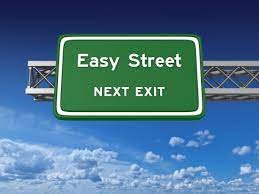mathjak107
Well-known Member
- Location
- bayside ,queens , ny
Bad investor behavior or poor spending habits is common all through life..IMO the biggest risk in all of this is our own bad behavior.
I've known several people that were not realistic about forecasting expenses, separating needs from wants, and balancing their fixed costs in retirement against their income.
Too many people keep nibbling away at their investments and promising themselves that they'll do better next year or YOLO until a couple of bad years cause them to start chasing higher yields and the whole thing goes into a downward spiral.
it is funny because we have all these rules and guides for investing but very little for spending .
all you hear is a useless unactionable mantra like live below your means , like that is a plan …
how much is living below one’s means ? A buck certainly qualifies ……
the real deal is you need a spending plan that breaks out discretionary and non discretionary spending …. It is all well and good you spend less then you take in but if push comes to shove and you have to cut back , you can’t when there is little discretionary spending in the budget or a savings rate in the budget .



